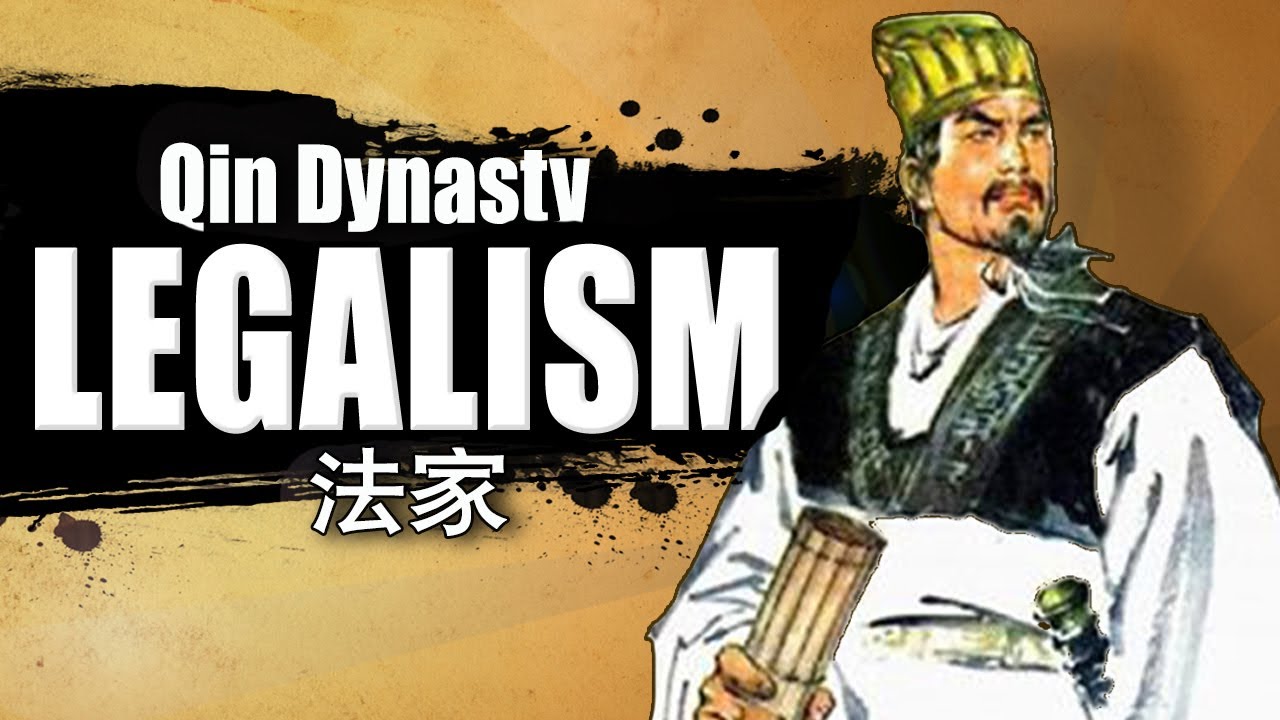Legalism - The Tyrannical Philosophy that Conquered China – Qin Dynasty Origin 2
Summary
TLDRThe video explores the rise of Qin Shi Huang, the first emperor of China, who unified the nation through military might and the adoption of legalism. This harsh philosophy, advocated by Han Fei, emphasized strict governance and control over loyalty, contrasting sharply with Confucian ideals. Qin's strategic hiring of talented individuals from various backgrounds bolstered his rule, but the oppressive nature of legalism also laid the groundwork for his dynasty's downfall. The narrative highlights the philosophical tensions that shaped Chinese governance, illustrating how the balance between power and morality remains relevant in leadership discussions today.
Takeaways
- 😀 Qin Shi Huang, the first emperor of China, unified the country by conquering rival states within a few decades.
- 📜 He succeeded where others failed due to his strategic hiring of talented individuals, including philosophers from enemy factions.
- ⚖️ The emperor adopted legalism, a philosophy that emphasized strict laws and harsh punishments to control the populace.
- 🔍 Han Fei, a significant legalist thinker, argued that humans are inherently selfish and need to be governed with fear and control.
- 👑 Qin Shi Huang's experiences with betrayal and internal conflict reinforced his adoption of legalist principles in governance.
- 💼 He purged political rivals, including the influential Lu Buwei, to consolidate power and eliminate threats.
- 🎓 Han Fei, despite his stutter and struggles in debate, became an essential figure in developing legalist thought.
- 🔗 The relationship between Qin Shi Huang and Han Fei was mutually beneficial, with each recognizing the other's strengths.
- ⚔️ Legalism's implementation allowed Qin Shi Huang to establish a meritocratic and centralized system, leading to military success.
- ⏳ While legalism initially helped create a powerful empire, its oppressive nature contributed to the eventual decline of the Qin dynasty.
Q & A
What significant achievement did the first emperor of China accomplish?
-The first emperor of China, Qin Shi Huang, unified the six rival states and established a centralized empire within a couple of decades.
What were the two main strategies that led to Qin's success in unifying China?
-Qin succeeded by hiring talented individuals indiscriminately, including those from enemy states, and by uniting his people under the state philosophy of legalism.
Who was Han Fei and what role did he play in the development of legalism?
-Han Fei was a philosopher who developed legalism, advocating that humans are inherently selfish and need strict control and governance by fear.
How does Han Fei's view of human nature differ from that of Confucius?
-While Confucius believed humans are inherently good and should be governed with kindness, Han Fei viewed humans as selfish and advocated for strict control to maintain order.
What does legalism prioritize in governance?
-Legalism prioritizes strict laws, harsh punishments, and the centralization of power in the hands of the sovereign to maintain order and achieve state goals.
What philosophical ideas were prevalent in China during the Warring States period?
-During this period, there were many competing philosophies including Confucianism, Taoism, Mohism, and various others collectively known as the Hundred Schools of Thought.
What significant actions did Qin Shi Huang take after eliminating his rivals?
-After eliminating rivals, Qin Shi Huang sought out Han Fei to adopt legalism as the state philosophy to unify his kingdom and achieve his conquest goals.
What impact did Han Fei's essays have on Qin Shi Huang's decision-making?
-Han Fei's essays criticized poor governance and influenced Qin Shi Huang to reconsider his treatment of Han Fei, ultimately leading him to implement legalist principles.
What were some of the key policies implemented under legalism?
-Key policies included meritocracy, standardization of rewards and punishments, strict adherence to assigned roles, and the absolute centralization of power.
How did legalism affect the long-term governance of China?
-Although legalism was replaced by Confucianism in later dynasties, its ideas were integrated into the governance of various empires throughout Chinese history.
Outlines

This section is available to paid users only. Please upgrade to access this part.
Upgrade NowMindmap

This section is available to paid users only. Please upgrade to access this part.
Upgrade NowKeywords

This section is available to paid users only. Please upgrade to access this part.
Upgrade NowHighlights

This section is available to paid users only. Please upgrade to access this part.
Upgrade NowTranscripts

This section is available to paid users only. Please upgrade to access this part.
Upgrade NowBrowse More Related Video

Legalism: Crime & Punishment in Qin Dynasty China | WooKong

Sejarah hidup Qin shi huang kaisar paling absolut dalam sejarah tiongkok part - 01

Sejarah hidup Qin shi huang kaisar paling absolut dalam sejarah tiongkok part 02

The Qin Dynasty - China's First Emperor

Qin Shi Huang: The First Emperor of China

CHINA ANTIGA
5.0 / 5 (0 votes)